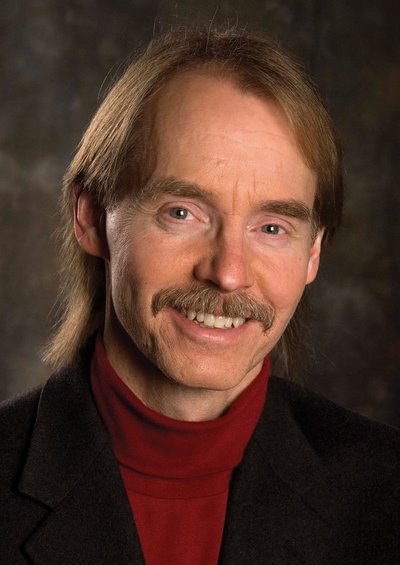May 31, 2007
Douglas Black
Doug Black didn’t set out to earn one of the UW’s Distinguished Teaching awards; he didn’t even set out to have an academic career. “I never even thought about becoming a professor,” he said. “I wanted to be a pharmacist and I expected to have a career as a specialty pharmacist.”
He earned his bachelor’s degree from the UW in pharmacy and then went on to earn the Pharm.D. degree, also at the UW, in 1983. From 1983 to 1989, he was a clinical staff pharmacist in oncology at UW Medical Center, working on medications for cancer patients. But during this time he also began teaching one pharmacology class for nursing students at Seattle Pacific University.
“Those students taught me one of the most important things I’ve learned about teaching, which is that it’s critical to understand your audience. You can know everything about the coursework, but if you don’t understand who the students are, and what their level of knowledge is, you’re not going to be very successful.”
In general, Black thinks beginning instructors, perhaps especially in the sciences, can go down the wrong path by focusing too much on the specifics of the material they are teaching and on their own presentation.
“Communication really is a two-way street,” he says, “and you need to pay attention to the other direction: Are the students engaged? Are they bored? Are they confused?”
One specific way to do this is to learn to read faces and pay attention to what they are telling you, he suggests. “I’ve certainly given some presentations that didn’t go over very well. But at least I know when I’m bombing. Sometimes it’s better to just end a class and try again tomorrow.”
Black teaches a range of courses. He is course master, with a partner, for Pharmacy 560, the “Therapeutics” course for third-year students, a core of the curriculum. He teaches a class in medications for master’s-level nursing students, and he gives numerous guest lectures each quarter on treatment for infectious diseases, focusing on antibiotics. He has also taught numerous elective courses in pharmacy and a class for physician assistant students in the Medex program.
Among the most time-consuming teaching tasks is his role as a preceptor for Pharm.D. residents and students on the infectious disease service at UW Medical Center.
“Our team is usually following 10–15 patients on any given day,” he said, “and with infectious diseases, most of our work is on optimal antibiotic dosing.
“I try to be sure the residents and students don’t lose sight of the patient when they are considering the medications. It can be easy to come up with a ‘perfect’ set of prescriptions, but what if the patient isn’t able to take them or tolerate the side effects?”
Most teachers pick up aspects of their teaching style from others they’ve worked with or their own instructors. Black said he is particularly indebted to one of his own role models, Dr. Joanne Mortimer, a physician with whom he worked in oncology.
“She was really a great teacher,” he said. “Among other things, she was approachable, non-threatening, patient, open to ‘dumb’ questions, and didn’t make anyone feel stupid.” (Mortimer is now at the University of California, San Diego, as deputy director of its Cancer Center.)
Students seem to recognize Black’s interest in them and what they are learning. One of the pharmacy residents who worked with him on the infectious disease service wrote in an evaluation: “Doug has been a wonderful preceptor. I enjoyed meeting with him every morning to discuss infectious disease topics as well as other pharmacy and non-pharmacy-related issues. He is always available for questions/concerns, even after we meet.”
On weekends, Black is often found in the mountains, hiking and climbing, but just before exams he usually stays in town to be available by e-mail. Although he says he is not a particularly social person, Black enjoys the give-and-take with students and his role in their development as professionals.
He is the faculty advisor for the Rho Chi Honor Society, the pharmacy school’s top students, and he says he never misses a graduation ceremony.

